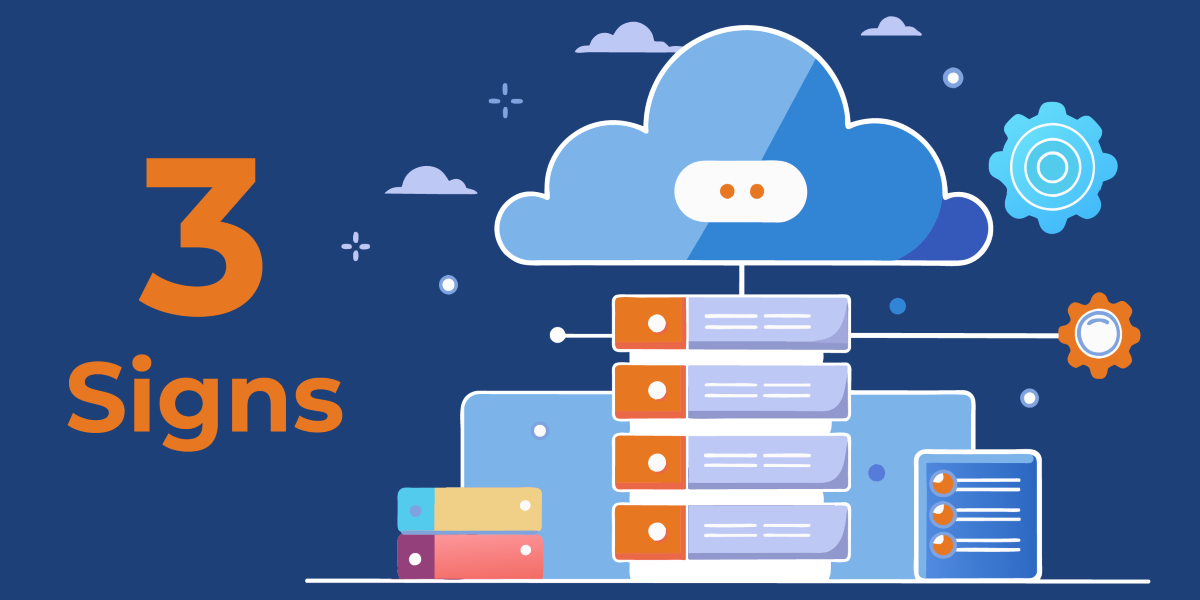3 Tell-Tale Signs of a Secure Cloud Solution

Cloud platforms are becoming an increasingly preferred option for intelligent information management solution buyers, offering unparalleled information accessibility and cost consistency while shifting the burden of data security from their business to the cloud provider. That last part is essential in a world where cybersecurity is becoming increasingly complex, threats are ever-present, and organizations are being held to higher standards of accountability. 18 U.S. states, for example, have enacted data privacy laws, many of which call for more stringent controls to prevent leaks, and 11 states have introduced similar bills in 2023 and 2024 (Bloomberg Law).
In fact, Statistica estimates that cybercrime costs organizations and individuals $9.22 trillion worldwide. While trusting a cloud solution provider with your data security is a good start for organizations without server expertise, it’s equally important to vet these providers for features, compliance certifications, and best practices that show they take your data security seriously. We’ll be going over some of these tell-tale signs of security below.
1) Essential Security Features in Intelligent Information Management Solutions
When it comes to securing your sensitive data, not all intelligent information management solutions are created equal. Below are crucial security features to look for in a highly secure and trusted solution:
Access Controls
One of the easiest and most effective data breach methods is to gain access from within. Forbes estimates over 500 million phishing attacks were reported in 2022, targeting businesses and individuals’ personal information such as login credentials, identification, and more. A robust IIM solution secures data access based on the user’s needs. Offering role-based access controls and allowing users to assign different permission levels adds layers of protection to information and limits specific data access to security and compliance-trained staff.
Data Encryption
Data encryption is crucial for protecting information from being intercepted in transit or during a server breach. It uses an unimaginably complex encoding process that can only be cracked by systems with a matching key. When implemented at rest and in transit, encryption protects information from unauthorized accounts.
Audit Trails
Keeping track of who accessed what, when, and how is vital for investigating suspicious activity. A well-designed IIM solution should provide real-time audit trails that log all document access, modifications, and sharing activities. Comprehensive reporting tools can help you monitor these logs, ensuring transparency and accountability across your organization.
Automated Backups
In the event of a data breach or system failure, having regular automated backups can be a lifesaver. Data backups can prevent disruptions during ransomware attacks, prevent data loss due to corruption and unauthorized deletion, and further incident response efforts with access to unaltered data
2) Industry Certifications to Trust for Intelligent Information Management
When vetting solutions for security best practices, it’s important to consider industry-recognized certifications that validate the measures and processes in place. Below are two key certifications to look for:
SOC 2 Compliance
SOC 2 compliance is essential for service providers that handle customer data. It ensures that the organization has implemented strict controls, policies, and procedures, particularly regarding data protection, availability, and confidentiality.
HIPAA Compliance
For organizations in the healthcare sector, HIPAA compliance is non-negotiable. An IIM solution that meets HIPAA standards ensures that patient data is protected by federal regulations, reducing the risk of data breaches and legal consequences.
3) Key Indicators to Look for in a Secure IIM Solution
In addition to essential features and certifications, several key indicators can help you assess a provider’s dedication to data security. These indicators include:
Transparent Privacy Policies
A reputable vendor should have clear and transparent privacy policies that outline how your data will be handled, stored, and protected. Review these policies to ensure they align with your organization’s data security needs.
Proactive Security Updates
Cyber threats are constantly evolving, which means your document management solution should be too. Look for a vendor that provides regular software updates and patches to address vulnerabilities and enhance security features.
Strong Vendor Reputation
The vendor’s reputation is a strong indicator of the reliability and security of its solution. Research the vendor’s history, read customer reviews, and consider third-party references to better understand its track record in data security.
Third-Party Security Audits
Independent security audits are an excellent way to verify the security measures of an IIM provider. A vendor that undergoes regular third-party audits demonstrates a commitment to maintaining high-security standards.
Responsive Customer Support
No matter how secure a system is, the risk of a breach will exist, but a responsive team can mitigate the damage. Ensuring that a vendor offers robust customer support that can quickly address any concerns will help address any potential breaches in the event they occur.
In Summary
With rising cybercrime and increased accountability, securing your data is more critical than ever. By vetting solutions for essential security features, industry-recognized certifications, and security best practices, you can ensure that your intelligent information management solution provides the protection needed to comply with evolving legislation and safeguard your data.

